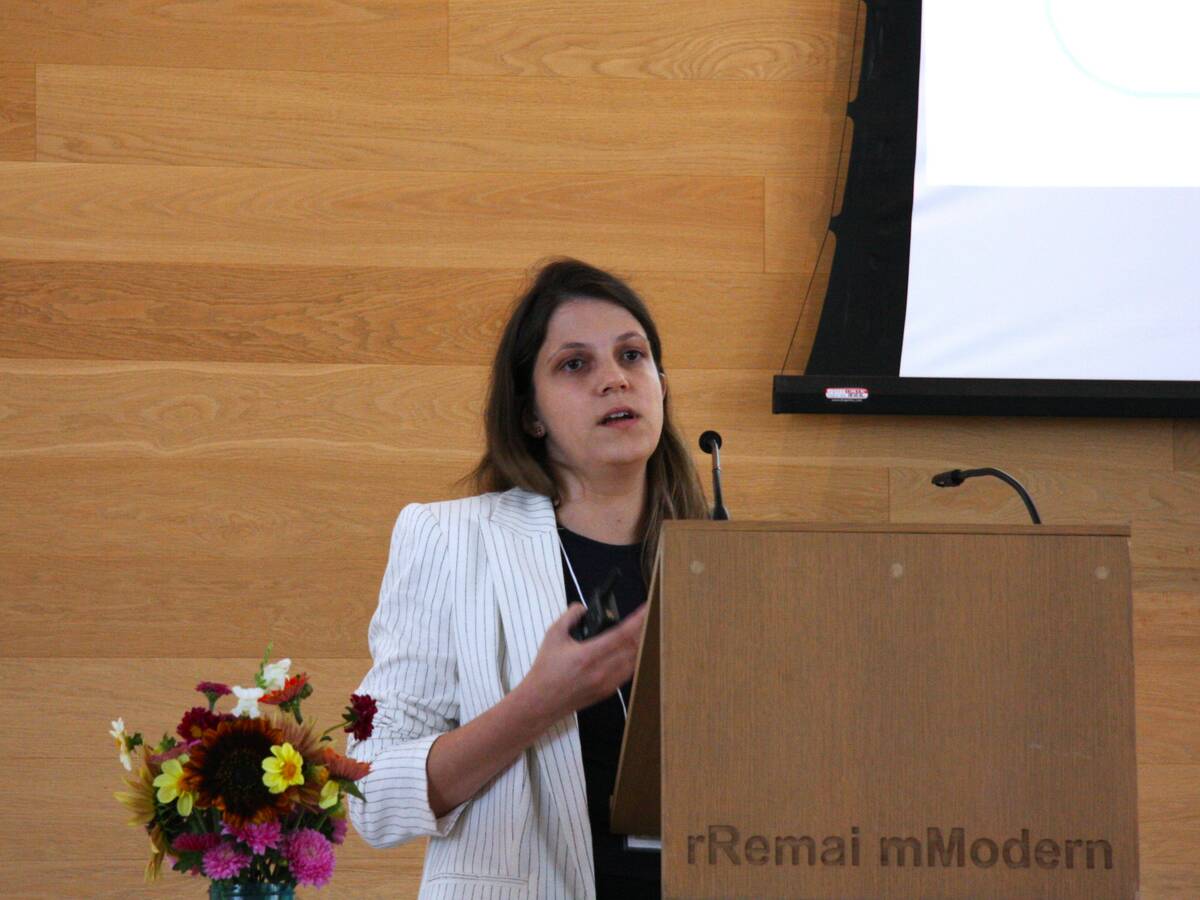Working with private sector | New service fees and contracts should bolster agency’s budget, says CIGI executive director
The Canadian International Grains Institute will soon be generating more revenue through service fees and contracts with private sector grain companies and industry groups.
Earl Geddes, the institute’s executive director, said revenues from commercial business deals and fee-for-service arrangements will almost certainly increase after Aug. 1.
“We’re going to see quite a few changes in how CIGI functions because we’re losing a single partner (the CWB) that really directed about 65 percent of our programming in the past,” Geddes said in Saskatoon last week.
Read Also

Fusarium head blight mycotoxin detector in the works
A PhD student at the University of Saskatchewan has been working on developing a method of detecting fusarium damaged kernels to ease the struggles of producers, agronomists and industry.
“We’re already seeing more interest from (other) grain companies that are now going to be selling wheat and durum and barley and they’re coming to us and asking, ‘can you help us to understand this part of the market better? Would you be available if we had a customer complaint? And can you do this type of analysis at your facility?’ There’s no question that more of CIGI’s funding will come from the private sector.”
CIGI’s primary purpose is to promote the use of Canadian grain by providing training, customer support and technical advice to buyers and end users.
The institute is also involved in research projects that look for new ways to use Canadian cereals, pulses, oilseeds and special crops.
The institute operates on a budget of $6.5 million to $8 million per year, but Geddes said that budget could easily expand after Aug. 1.
“I would think that it may go up simply because of the new commercial business that we hope to do,” he said.
CIGI receives a significant portion of its revenue from western Canadian farmers under the single desk marketing system, which will remain in place for another two months.
As much as $2.2 million per year is deducted from CWB pool accounts and allocated to CIGI operations.
That funding arrangement will change after Aug. 1.
Farmers will continue to support CIGI operations, but farmer contributions will be collected through a refundable producer checkoff rather than through mandatory deductions from CWB pool accounts.
CIGI’s other revenue is derived through direct government payments and commercial agreements.
Geddes said he does not expect government contributions to decrease in the near future.
The institute is also expanding its role in promoting Canadian pulse crops.
A research project is looking for new ways to use pulse crops and processed products such as pulse flour. It could open up new markets for Canadian pulses and will expand CIGI’s involvement in crops other than cereal grains.
“We see pulses growing to represent as much as 30 percent of CIGI business in the future,” Geddes said.
CIGI is headquartered in Winnipeg, but recent media reports have suggested the institute may be considering an expanded presence outside of the Manitoba capital, most notably in Saskatoon.
“I think those stories may have some merit to them,” said Geddes.
“If, in fact, (Saskatoon) is where the wheat industry is going to be, and the pulse industry (is going to be) … it would make some serious sense … to consider where we should be located.”
He said decisions on where the institute should position its resources will hinge on a number of factors, including organizational changes that may occur at CIGI and the fate of a proposed grains excellence centre in Winnipeg.















